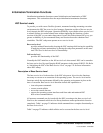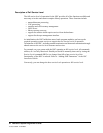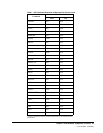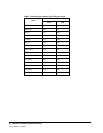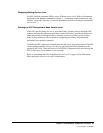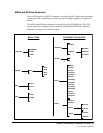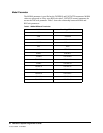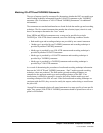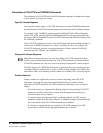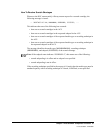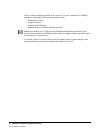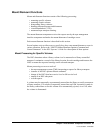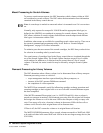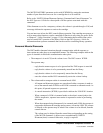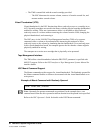
Chapter 2. Host Software Component Functions 29
1st ed., 6/30/04 - 312579601
Matching VOLATTR and TAPEREQ Statements
The type of request (specific or nonspecific) determines whether the HSC uses media type
and recording technique information from the VOLATTR statement or the TAPEREQ
statement. (See “Precedence of VOLATTR and TAPEREQ Statements” for additional
information.)
The statements are searched until matches are found for both the media type and recording
technique. The first control statement that matches the selection (input) criteria is used;
there is no attempt to determine the ‘‘best’’ match.
Since MEDia and RECtech parameters may or may not be specified on a single
TAPEREQ or VOLATTR control statement, one of the following conditions results:
• Both media type and recording technique are provided by one control statement.
• Media type is provided by one TAPEREQ statement and recording technique is
provided by another TAPEREQ statement.
• Media type is provided by one VOLATTR statement and recording technique is
provided by another VOLATTR statement.
• Media type is provided by a VOLATTR statement and recording technique is
provided by a TAPEREQ statement.
• Media type is provided by a TAPEREQ statement and recording technique is
provided by a VOLATTR statement.
As a result of determining the precedence of media and recording technique information
between the VOLATTR and TAPEREQ statements, ‘‘final’’ media type and recording
technique values are produced. The final media type and recording technique are
compared to the aggregate media type and recording technique of the EDL. If an
inconsistency is detected, a message is issued to this effect, and the media type and
recording technique of the EDL are used. If the final media and recording technique are
consistent with the EDL, they are used to satisfy the request, unless doing so would cause
the job to fail.
StorageTek recommends placing all control statements in a most specific to least specific
order. Very general VOLATTR or TAPEREQ statements should be placed last to act as a
global or site defaults.



